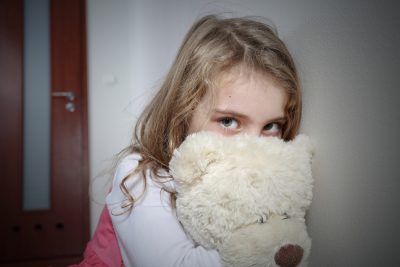
Fears are common and expected in childhood and may help keep them stay safe. For example, a fear of spiders or snakes may prevent children from engaging with dangerous creatures. If your child, however, experiences an intense anxiety reaction that is unreasonable given the threat posed by the object or situation, and this gets in the way of daily activities, this may signal a phobia. For example, a child who experiences intense fear when encountering a harmless garden spider and tries to avoid places which may contain spiders such as dark room, school playground, or camp, may be affected.
Children can be phobic of various things, such as animals, heights, or medical procedures. Phobias can run in families, and both genetic and environmental factors can contribute to developing a phobia. A traumatic event may lead to a phobia developing (e.g. a dog bite may lead to a dog phobia), or children may learn to fear an object or situation by watching others respond to it fearfully. Children, however, may not be able to explain how or why their phobia began.
A child who faces a feared object or situation may:
- Cry, tantrum, freeze or run away, ‘clingy’ behaviour
- Experience physical symptoms such as sweating, trembling, feeling faint, nausea, or diarrhoea
- Try to avoid it or take unnecessary precautions, e.g. a child who fears heights may avoid planes or tall buildings
- Ask parents to be present or to check things first
Treatment for phobias have shown to be highly effective and can be the difference between a phobia resolving in childhood or continuing into adulthood and affecting quality of life. Our trained Psychologists would love to work with you and your child to help conquer their fear. If this resonates with you, don’t hesitate to contact us on 9525 8443.
